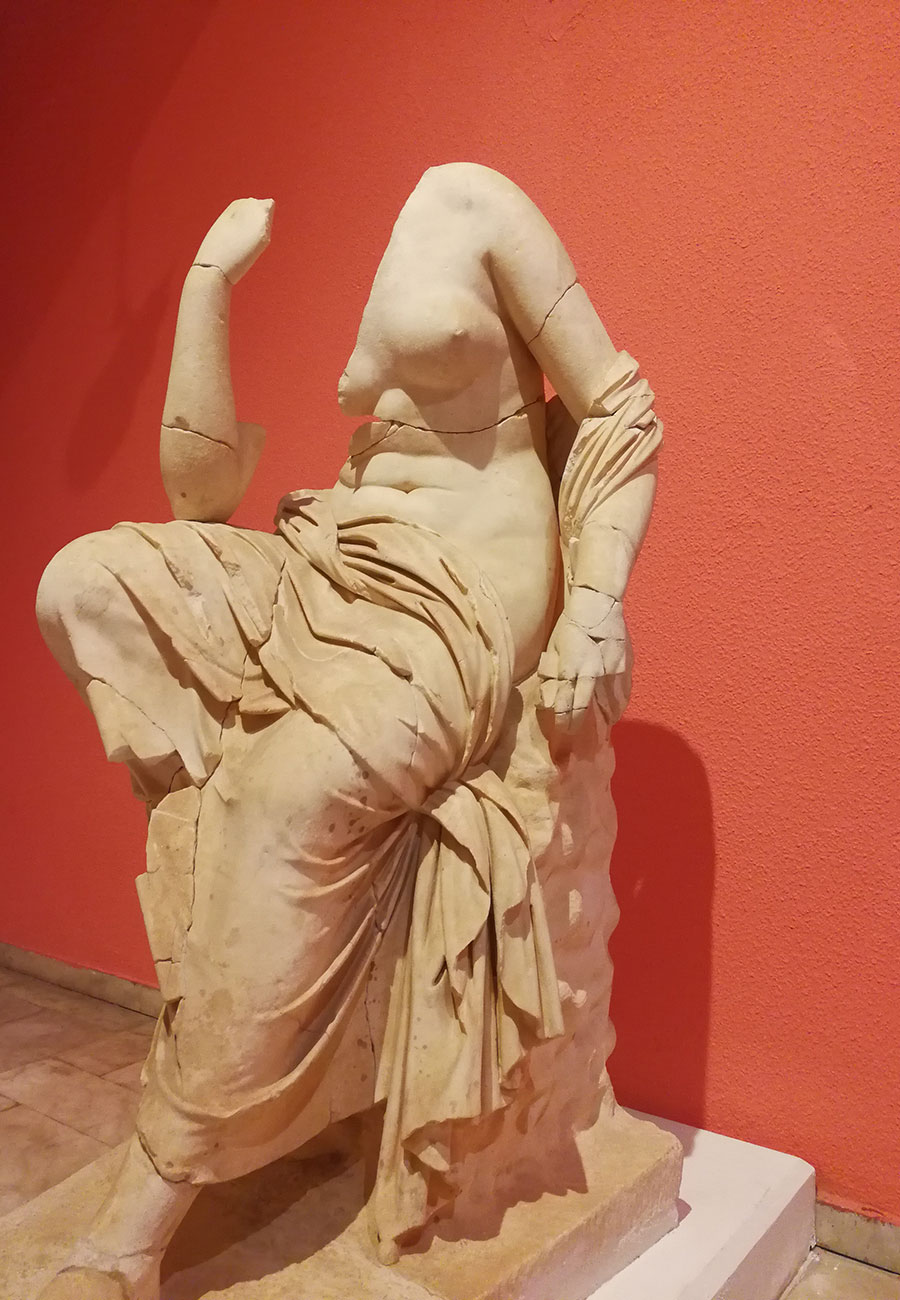Where goddesses loved and fought


Born from foam off the coast of the Greek Island of Cythera, Aphrodite is associated with love, pleasure and procreation. True to that calling card, she was frequently unfaithful to her husband, the god of blacksmiths, and seduced both men (two shepherds) and deities, before giving birth to many illegitimate children.
On site at the Aphrodisias, a giant marble male nude stood surrounded by dilapidated walls, whose muscular bulk were set against the cloudless blue sky. This is the ideal male figure that could have aroused the goddess, and one that the young Greek men must have had in mind when they worked out in the city's unique 170 m pool two millennia ago, beads of water glistening on their healthy, sun-tanned skin. (On other occasions, during certain celebrations, young men brushed their skin with olive oil and ran naked in the stadium, in the name of their goddess.)
Yet despite its seemingly hedonistic side, the cult of Aphrodite in fact had to it a pointedly political dimension: Gens Julia - the family of Julius Caesar, Octavian August and their immediate successors - claimed divine descent from the goddess. With a row of giant pillars pointing to the sky, the Temple of Aphrodite evokes the days when people ate, loved and prayed in her name.


















